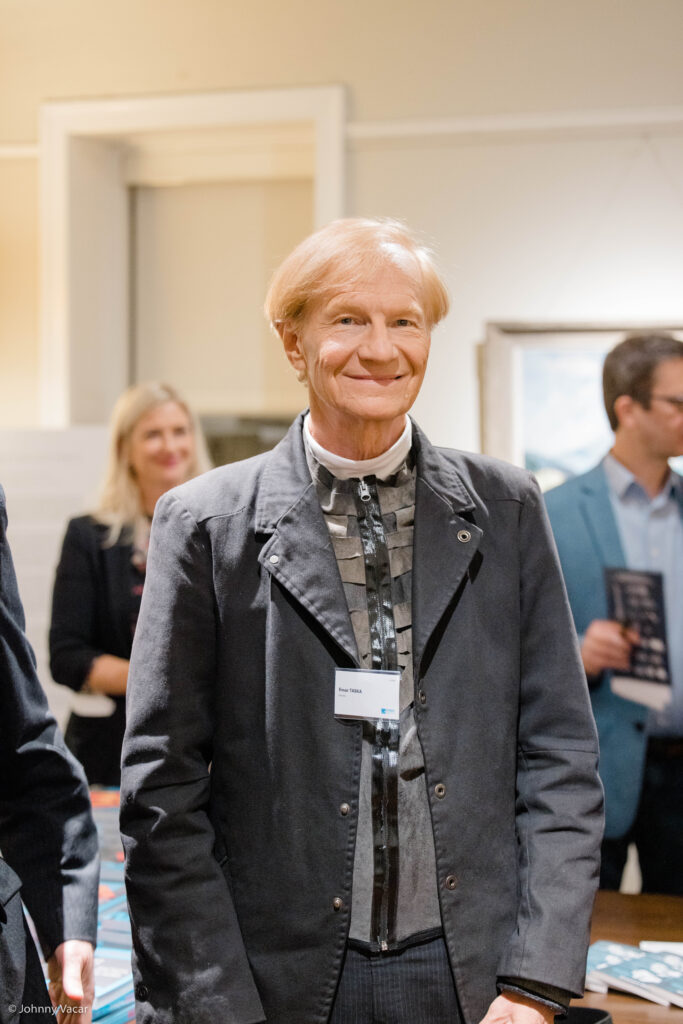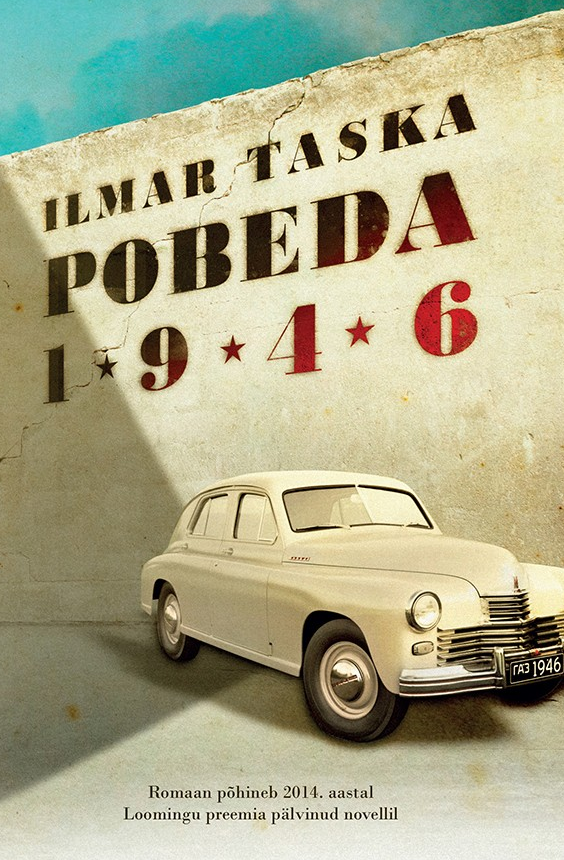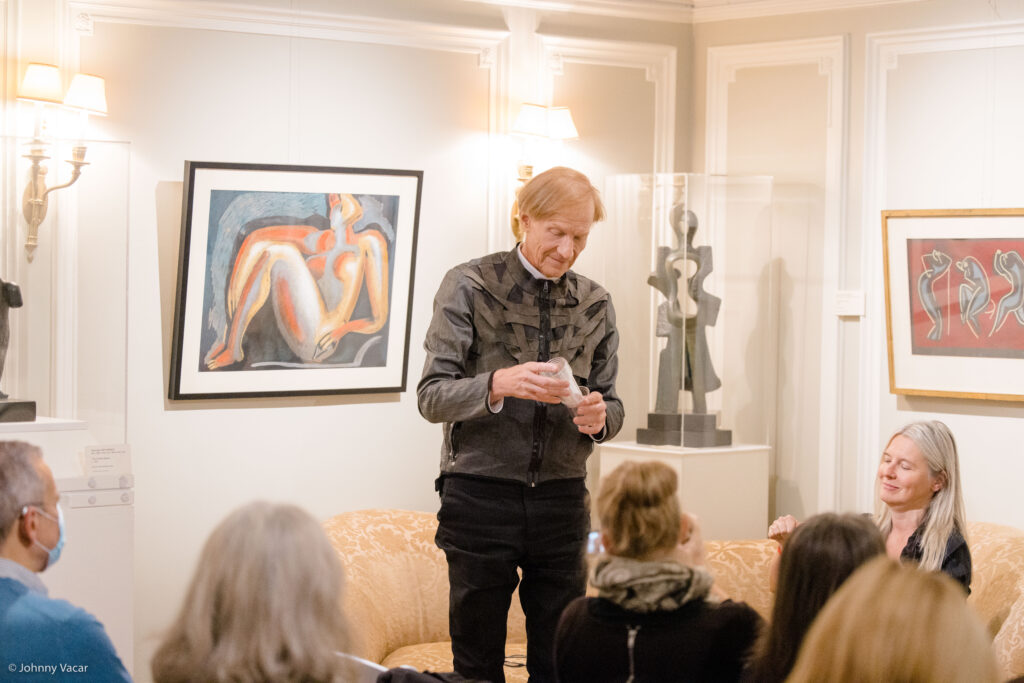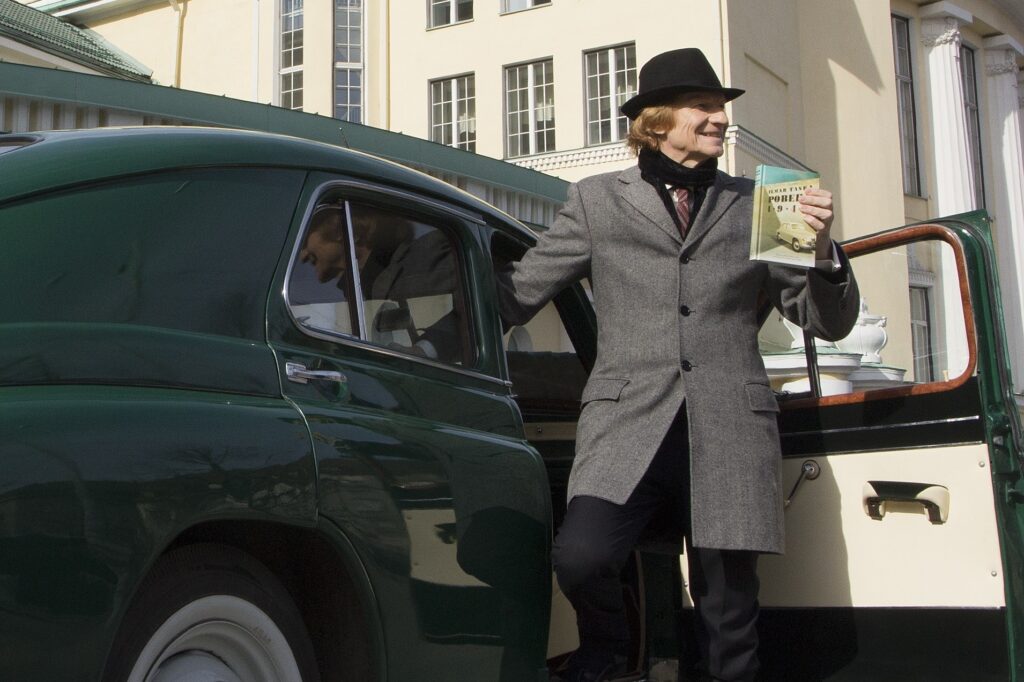Ilmar Taska, an Estonian filmmaker and writer, represented Estonia at the European Literature Night 2022 in New York City; Taska also introduced his new novel, “The Call of Elysium”.
New York has been a crossroads of cultures for decades. One such example was the European Literature Night in New York City on 16 November. Some of Europe’s literary talents gathered at the Ukrainian Institute of America to celebrate the power of international literature. The event introduced 11 European authors through readings and discussions.
Estonia was represented very eloquently by Ilmar Taska with his novel “Pobeda 1946/ A Car Called Victory” (Norvik Press, London). Taska also introduced his new novel, “The Call of Elysium” (Varrak, Tallinn). The literature night also included authors Bianca Bellová (the Czech Republic), Krystyna Dąbrowska (Poland), Raphaela Edelbauer (Austria), Olivier Guez (France), Sándor Jászberényi (Hungary), Nora Krug (Germany), Askold Melnyczuk (Ukraine), Claudia Serea (Romania), and translator Birutė Vaičjurgis Šležas (Lithuania).
While previously, the European Literature Night has been held annually at the New York Czech Center, this year it was decided to organise the event at the Ukrainian Institute to support Ukrainians in the difficult times. The institute is based in a national historic landmark building at the corner of Fifth Avenue, close to the Metropolitan Museum of Art. “While each language expresses familiar themes and motifs in its own way, it is heartening that, primarily, we find more similarities than differences in our exploration of multi-cultural literature,” Kathy Nalvazko, the president of the Ukrainian Institute of America, said.
The event started with a panel discussion moderated by Miroslav Konvalina, the head of New York branch of European Union National Institutes for Culture, and Andrew Singer from Trafika Europe Radio. Opening remarks were by Silvio Gonzato, the deputy head of the EU’s delegation to the UN; Gonzato mentioned that “he rather reads books than the legal materials he needs to read every day.”

Inspired by the Soviet occupation
The writers were divided into different rooms where inspiring readings, questions and answers took place simultaneously. Ilmar Taska’s reading took place in a beautiful room full of paintings and sculptures on the top floor and it was introduced by Jaanika Peerna, the cultural affairs coordinator of the Estonian Consulate in New York. They had a lively and well received conversation about Taska’s early childhood in Siberia where his family was deported to – and the situation in Estonia during the Soviet occupation that inspired him to write the novel “Pobeda 1946”.
The novel “Pobeda 1946” has so far been translated into 14 languages, including English, German, Arabic, Swedish, Danish, Finnish, Hungarian and Bulgarian. The Times Literary Supplement included it in its Books of the Year 2018 list.
The setting of the novel takes place in Tallinn, London and Moscow in 1946. A young boy is transfixed by the beauty of a luxurious cream-coloured car gliding down the street. It is a Russian-made Pobeda, a car called Victory. The sympathetic driver invites the boy for a ride and enquires about his family. Soon the boy’s father disappears.
Taska’s novel captures the distrust and fear among Estonians living under Soviet occupation after the Second World War. The reader is transported to a world seen through the eyes of a young boy, where it is difficult to know who is right and who is wrong, be they occupiers or occupied. Resistance fighters, exiles, informants and torturers all find themselves living in Stalin’s long shadow.

An AI-controlled future?
At the discussion, Taska shared many intriguing thoughts. The end of war does not yet mean peace. The victory in WWII did not bring peace to everybody or restore the independence in Estonia.
Even now, in peaceful times, there are many labs producing viruses, bacteria, poisons. When doing research for “Pobeda 1946”, Taska read about labs producing viruses and poisons in the Soviet Union and Germany. There are many more of them now. It is a less costly weapon than missiles.
And if the world population is reduced, are our missing friends replaced by AI friends? Taska thinks that the modern technology and machine learning could allow producing virtual copies of lost people.
Hence, he started writing about a fictional virtual reality site Elysium.com that reproduces old movie stars and presidents. Viewers can interact intimately with them, as long as there is money on their credit cards. Would you like to spend intimate time at home with your favourite and legendary movie star, like Marilyn Monroe, or ask for personal advice from a beloved president, like John F Kennedy? The virtual environment Elysium.com gains popularity in the novel but nothing is as entertaining or innocent as it seems, and the development of the virtual portal takes a dangerous turn. As the historical idols reveal themselves, so do the plans of the forces behind the portal.

The literary evening created a lively response in New York and the tickets for the event were sold out. It is a good a sign that books are still read in a city which offers so many different cultural events.

